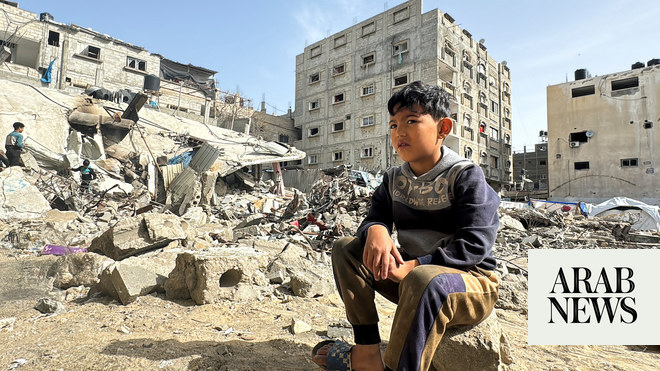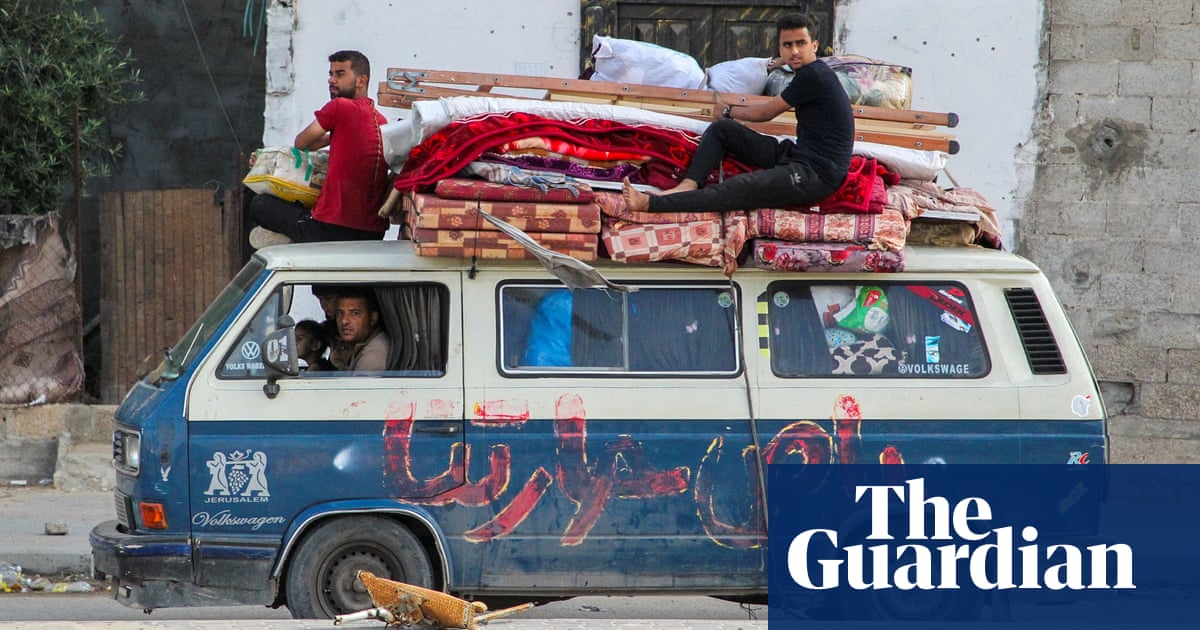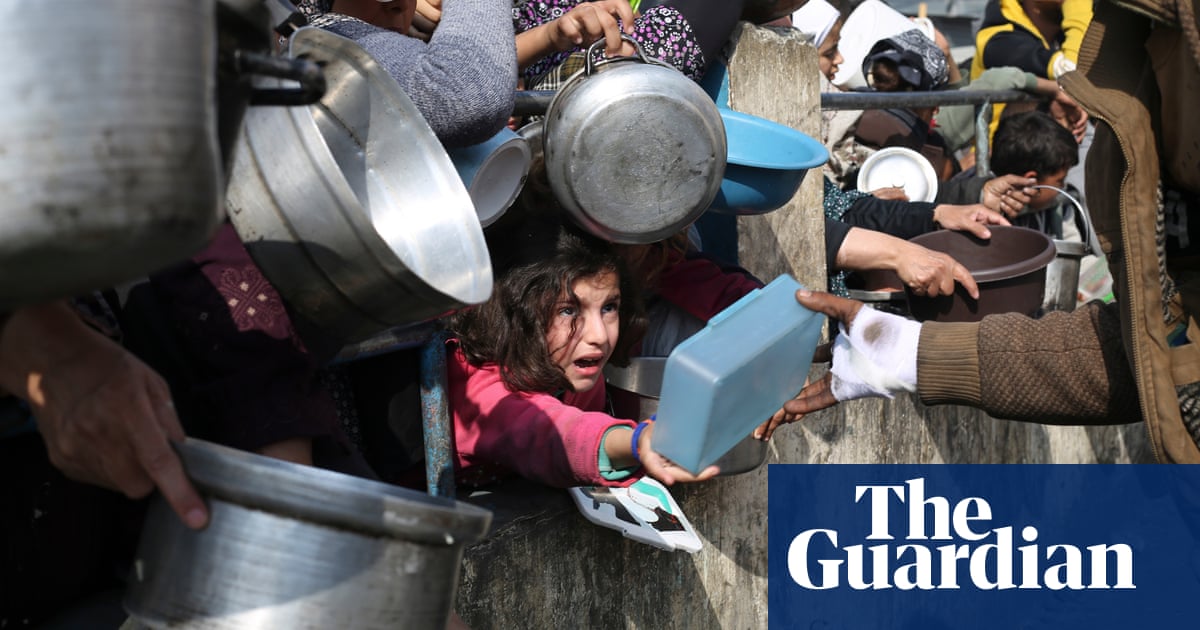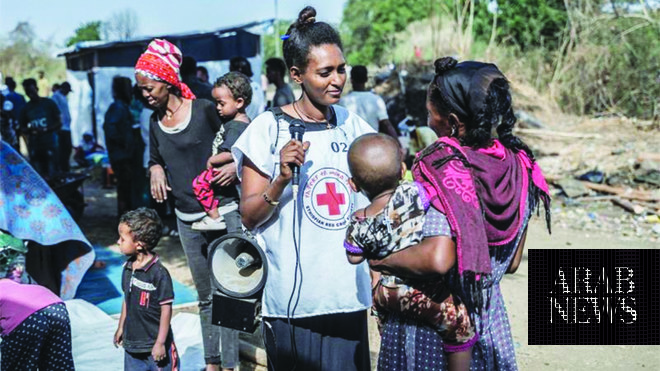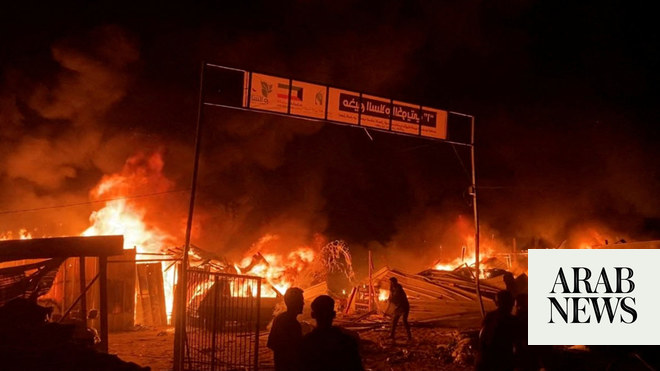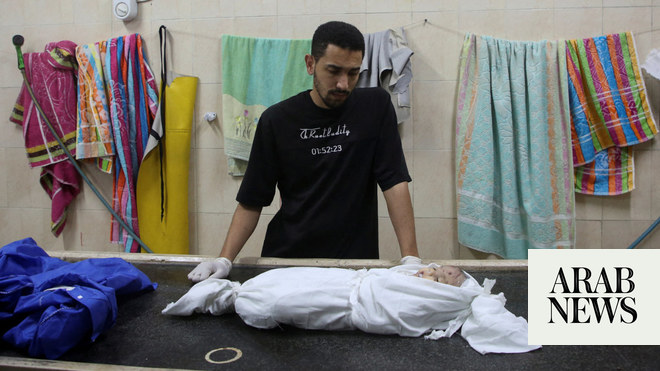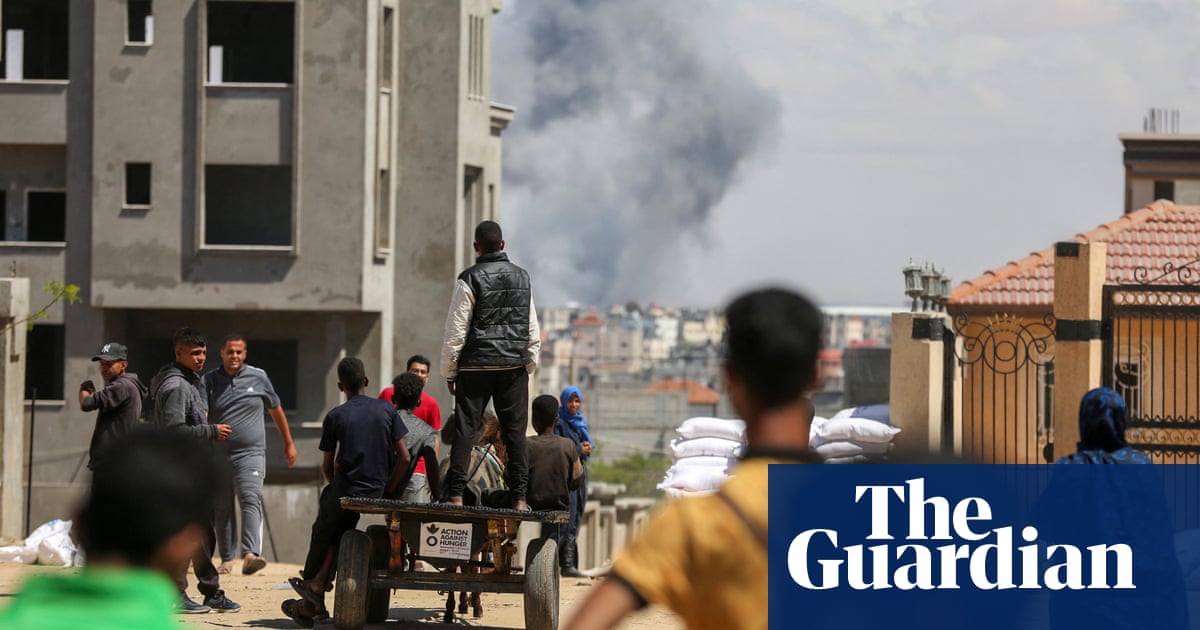
Aid groups have warned of grave humanitarian consequences and drastic cuts to the supply of aid if an Israeli offensive on Rafah goes ahead, after Israel demanded that tens of thousands of people leave the eastern part of the city.
“A military incursion into Rafah could lead to a bloodbath because of how densely populated Rafah has become,” said Tamara Alrifai, the director of external relations for the UN’s agency for Palestinian refugees, Unrwa. “Another looming displacement is already creating panic and anxiety among a highly vulnerable population.”
An estimated 1.4 million people have gathered in Rafah after repeated Israeli evacuation orders forced them south towards areas previously marked as safe zones. Orders demanding that an estimated 100,000 people leave eastern Rafah were accompanied by a reported rise in Israeli airstrikes on those locations.
The Rafah and Kerem Shalom crossings – the only routes for aid into the territory – were both closed on Monday, with no clear sign of when they might reopen. Data from the UN shows that no aid trucks were allowed through Rafah on Sunday. It was reported that 128 trucks entered through Kerem Shalom on Sunday, despite a Hamas rocket attack that killed four Israeli soldiers. The shipments were a fraction of the aid that relief groups say is needed to stave off rising famine across Gaza.
“This is extremely concerning as these are the only two crossings open for humanitarian access and commercial goods,” Alrifai said. “If the crossings are closed, this means no commercial or humanitarian supply lines are active, so people in Rafah will not have access to humanitarian assistance. This means we can expect the famine to move south.”
Unrwa announced early on Monday that it would “maintain a presence in Rafah for as long as possible and will continue providing life-saving aid to people”.
Alrifai said the closure of the Rafah crossing had provoked two major concerns for Unrwa, which oversees much of the humanitarian response going into Gaza. “The first is that whatever supplies we already had in Rafah were low, due to trickle of aid going in that we have long been warning about,” she said.
“In any normal situation we would talk about contingency plans but given how difficult the access for supplies into Gaza has been, we do not have entire warehouses full of goods ready to go. Even if we did have that, the fact that the Rafah crossing has closed and this is the only crossing point for fuel means even if we had a base of supplies we can’t necessarily move these around due to the low fuel supplies.”
Areej Saqqa, of Euro-Med for Human Rights, said she and her husband had fled Rafah for Gaza’s middle area in the early hours of the morning as the situation had become so difficult. The roads were crowded with others fleeing amid fears of an invasion, she said.
“People are very afraid, and the prices of goods have risen again with the closure of the Rafah crossing,” said Saqqa, adding that price of basic goods such as tomatoes, potatoes or bottled water had doubled.
Hisham Mhanna, of the International Committee of the Red Cross, said that like Unrwa his organisation did not intend to move its operations out of Rafah, but it feared that an escalation would make it “difficult to help anyone”.
“There’s an increased burden on humanitarian workers, while the space for us to operate is shrinking,” he said, speaking from Rafah. “Providing a meaningful humanitarian response on the ground could become out of reach … the situation has become perilous in the areas receiving evacuation orders.”
Mhanna said the average family in the southernmost part of Gaza had been displaced five times since last October, and those fleeing eastern Rafah were arriving in areas with little to no infrastructure and already struggling to accommodate waves of internally displaced people.
“They were already living with a lack of sanitation and a rise in waterborne diseases, as well as a lack of healthcare facilities and workers,” he said. “Coupled with the constant stress and fear, we’re seeing an increase in people dying from infectious diseases.”
Alrifai said the closure of both crossings into Gaza had increased pressure on a pier under construction by the US military that is intended to increase the supply of aid into the enclave.
Despite criticisms from aid groups that maritime aid shipments are a less effective route to deliver aid, a prolonged closure of the crossings could transform the pier into Gaza’s sole aid supply.
Aid arriving via the pier could reach al-Mawasi, the southern area closest to the coastline, but Alrifai said it was not yet clear whether it would be possible to reach many of the most desperate people fleeing eastern Rafah for other parts of Gaza.
“There’s a lack of clarity, namely who will unload the aid from the boats and what the distribution plan is,” she said. “We anticipate that the pier will be operational within a few days, but with heavy caveats because there’s just such opacity about how the entire pier operation will be rolled out.”





